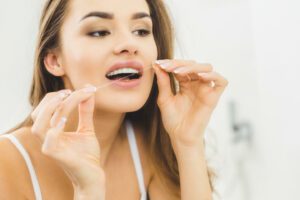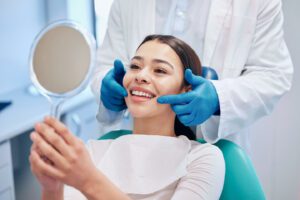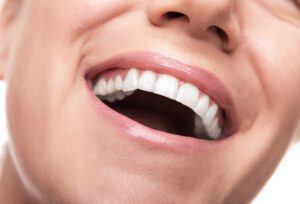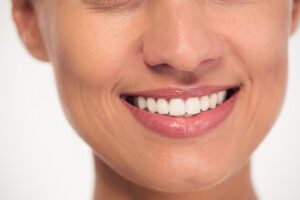Dental “Bleaching” or “Tooth Whitening”, is a common procedure and has become one of the most popular ways to improve your smile by lightening the shade of your natural teeth.
This is a simple and effective treatment which can be carried out at the surgery or at home. Tooth whitening is a non-invasive cosmetic treatment which does not involve drilling or removal of the tooth surface.
Reasons Why Your Teeth Can Become Discoloured
- Drinking tea, coffee or red wine
- Consuming foods with strong colourings
- Smoking
- Natural result of aging
- Trauma to the tooth or teeth
- Some teeth may be naturally pigmented or stained as they develop
- Certain medications
The outer surface of the tooth called ‘Enamel’ has tiny surface irregularities which trap everyday stains. Tooth whitening gel is a Peroxide based compound (Carbamide Peroxide or Hydrogen Peroxide) which penetrates these irregularities removing the stains and effectively whitening the teeth.
Home Whitening
- Bleaching kits that can be used at home include whitening trays (made to fit your mouth using impressions taken by your dentist) and a tube containing the whitening gel.
- Home bleaching can be used at any time during the day and produces effective results.
- The trays containing the gel are worn for approximately 30 minutes per day for about 2 weeks.
- Teeth may become sensitive for a short period of time post-bleaching. Tooth Mousse is a good product for reducing this sensitivity.
In Office Whitening
- Bleaching undertaken at the surgery is performed using a light source and a stronger Hydrogen Peroxide concentration (6% to 38%) than the kits which can be used at home.
- The effects of power or in-surgery bleaching or are immediate, but more than one treatment may be needed to get the desired result. It is not uncommon for an initial treatment at the dental surgery to be followed up with further treatment or maintenance at home.
Most people obtain very pleasing results from tooth whitening. However, there are some cases where treatment may not be effective. Only natural teeth respond to tooth whitening, Crowns, Bridges, Dentures or Implants cannot be whitened. Your dentist can arrange a consultation appointment, where your teeth and gums will examine and then discuss whether tooth whitening is appropriate for you.





